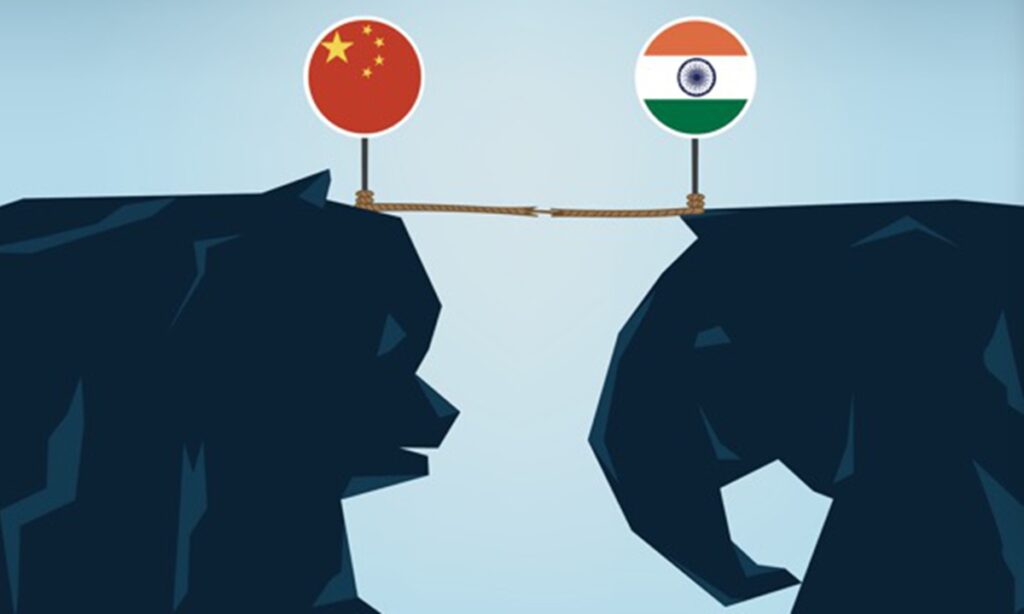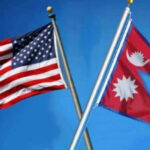Direct passenger flights between China and India have been suspended for four years and have not yet been restored. A Reuters report on Thursday said that several times over the past year or so, China’s government and airlines have asked India’s civil aviation authorities to re-establish direct air links, but India has shunned the call. The report cited a senior Indian official as saying that “unless there is peace and tranquility on the border, the rest of the relationship cannot move forward.” The Times of India reported that India remains hesitant due to ongoing tensions over a border dispute.
As the two most populous countries in the world as well as neighbors, not having direct flights is obviously extremely abnormal. At present, India still imposes strict visa restrictions on Chinese citizens. Chinese people applying for business visas are faced with all kinds of difficulties. Most Chinese students admitted to Indian universities fail to obtain Indian visas. Chinese journalists in India have also encountered discriminatory treatment such as rejection of visa renewal applications and forced departure within a time limit. There are no permanent journalists between the two countries and media exchanges have been thwarted. In addition, since India tightened restrictions on investment from China in 2020, about 200 investment applications from Chinese companies are still waiting for approval by the Indian government.
The reason why India does this is related to its current complicated mindset toward China. First of all, some Indian politicians insist that “as long as border differences are not resolved, bilateral relations will not return to normal” when handling many specific bilateral affairs, and “border problems” seem to have become a convenient excuse for India to avoid carefully considering the pros and cons of its own interests in specific affairs. Second, some people in India are still obsessed with the idea of “decoupling” from China and have adopted “decoupling” policies in a number of fields. They believe that the more they rid themselves of dependence on and reduce exchanges with China, the better, as if India can develop faster that way.
In fact, seeking decoupling from the Chinese economy is neither economical nor realistic, and even less possible. In recent years, China-India trade has grown against this trend, reflecting the genuine needs of both countries. According to Indian statistics, bilateral trade reached $118.4 billion in the fiscal year 2023-24. A survey report by India’s “Business Today” in December last year showed that over half of Indians purchased “Made in China” products during that year. Some Indian scholars admit that bilateral trade is destined to increase. BBC also quoted Indian experts as saying that India’s efforts to reduce import dependence on China have failed. There were approximately 1.0674 million trips between the two countries in 2019, and approximately 869,600 Indian citizens entered the Chinese mainland. Whether viewed from an economic perspective or in terms of personnel exchanges, resuming direct flights benefits China, but even more so India.
India seems to be dominated by a mindset of “demanding” and “coercion” in its relations with China, using bilateral reciprocal actions and even its own commitments as leverage to gain advantageous positions in border issues or bilateral relations. Recently, a series of statements and actions from India on the Taiwan question have reflected this mentality. Some Indian experts, based on distorted facts about border issues, believe that India should not adhere to its commitments on the Taiwan question, and even claim they could use the “Taiwan card” in negotiations with China on border issues.
Due to its optimistic view of its own position in the international arena and China-India bilateral relations, the Indian side always seems to believe that China needs India and is eager to ease relations with the country. At the very least, New Delhi believes it can get something from Washington by keeping China-India relations in a state of tension. In reality, whether it’s the border issue or other matters, India has very few bargaining chips with China, which is far from what New Delhi imagines. Indian media has repeatedly hinted at easing visa restrictions for Chinese technical personnel, which is a manifestation of how its visa policy restrictions undermine its own interests.
The Chinese side has consistently believed that China-India relations concern the well-being of the 2.8 billion people in both countries, and that their common interests outweigh their differences. This is an objective statement of fact. Whether China-India relations should be boosted is determined by the objective realities of both countries, not by the subjective wishes of some political figures. It is estimated that this year, 130 million outbound trips will be made from China. While countries like Japan, South Korea, and Southeast Asian nations warmly welcome Chinese tourists, India seems content to shut its doors to them. By continuing to refuse visas and resist resuming direct flights, India risks losing Chinese business and tourism to other destinations. New Delhi should take this into account and resolve it wisely.
Global Times




